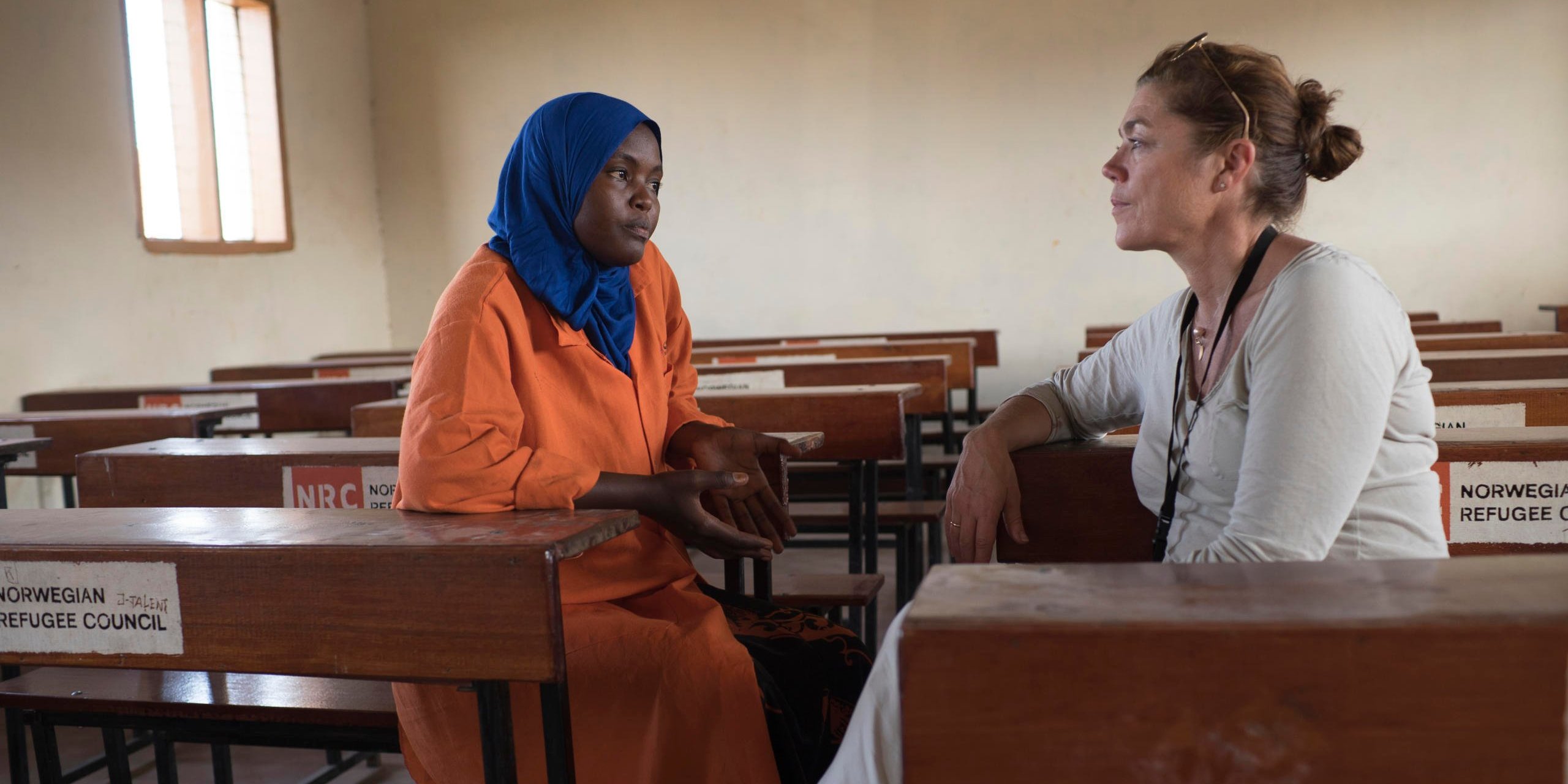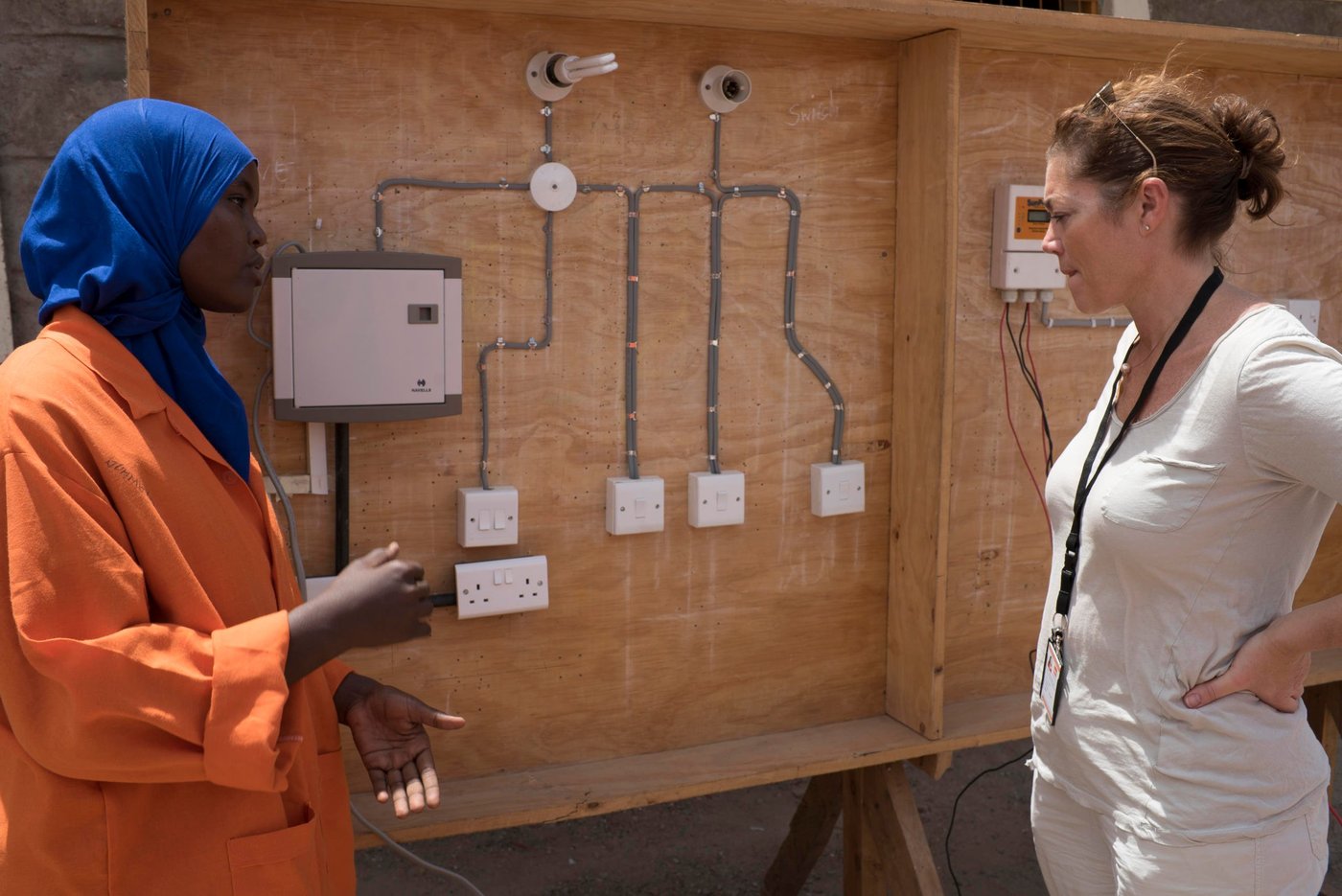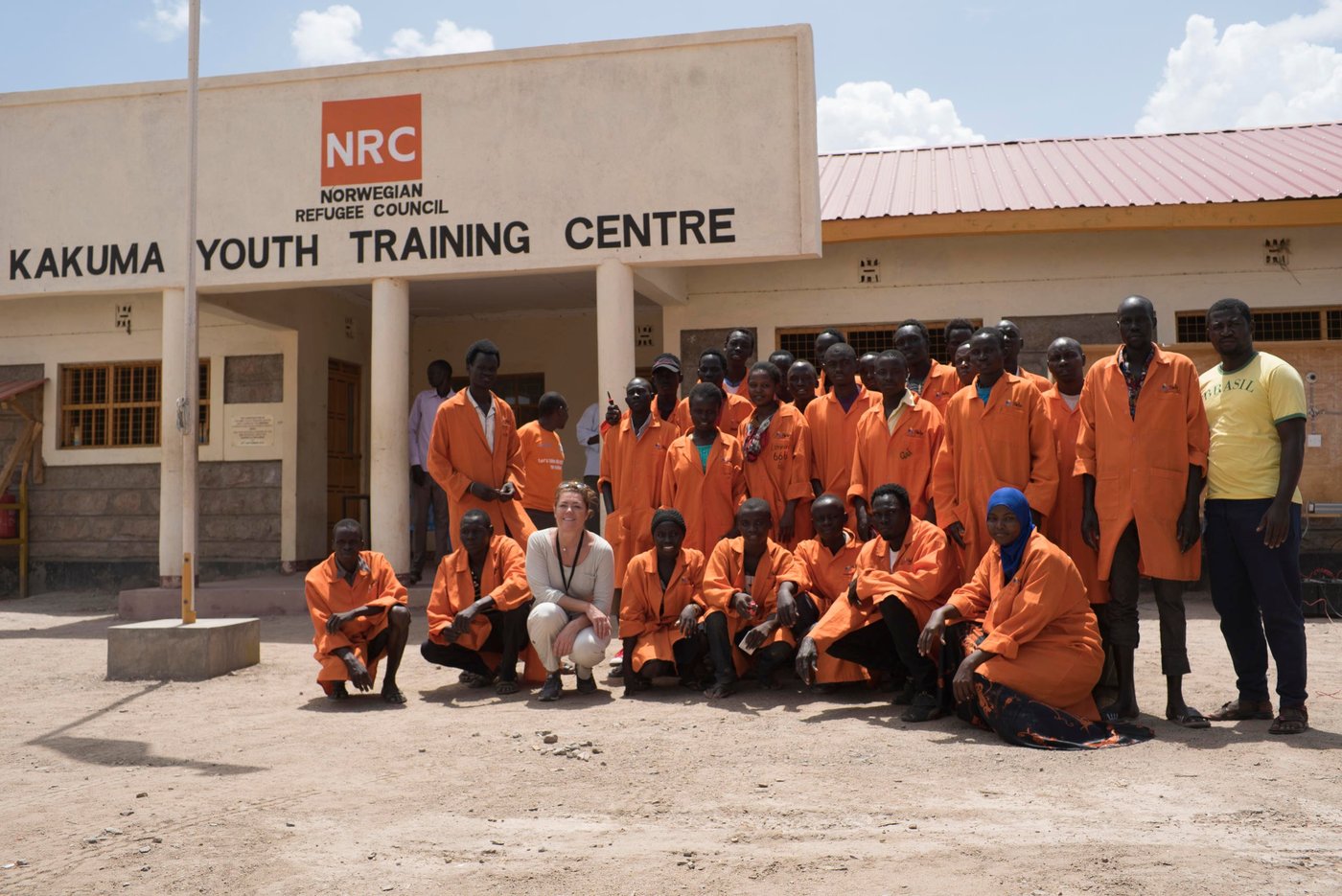
In the autumn of 2016, Kristin Skogen Lund, the CEO of the Confederations of Norwegian Entreprise (NHO), visited the NRC's vocational schools for youth in the refugee camp Kakuma, in the north of Kenya. She cares deeply about the importance of providing youth with access to education and work.
During the visit, Kristin met with Habiba from Somalia. When she was eight, Habiba fled from Somalia with her family. She is now 22, and no longer remembers everything that happened during the flight 14 years ago.
She does, however, remember the night her family was attacked by armed men. They had yet to reach Kenya. The men took her father and grandmother away, and they were shot and killed. Habiba's mother was pregnant. She was stabbed to death with a knife.
Alone in Kenya
Habiba and her siblings managed to make it to Kenya, where they were helped by hospitable Kenyans who gave them food and shelter. For two years, they relied on help from other people, until they arrived in the refugee camp Kakuma, north in Kenya. Habiba has stayed there ever since.
Her sister has been granted a residence permit in the USA, and now lives in Texas. Habiba hopes she can join her sister soon. In the meantime, she is an eager student at the NRC's vocational school in Kakuma, where she is studying electrical installation.
Habiba says that she chose to study this because she wanted to challenge the traditional way of thinking that says that women cannot do what is considered a "man's job".
"Even now, when I tell my neighbours what school I'm in and what I am studying, they answer: "How can a girl become an electrical installer? That is for men, not for women." I answer: "Anyone can do it. What men can do, women can do even better."
The article continues below.

Stands out from the crowd
Kristin is impressed by Habibas ambition to become an electrical installer despite the prejudice she meets. She asks Habiba:
"Weren't you afraid it would be difficult?"
"No," she answers.
Habiba believes it to be an advantage to be a female electrical installer when she is going to find a job.
"I know there aren't many women studying this. When I am going to apply for jobs, I have an advantage because I, as a woman, stand out from the crowd of other electrical installers."
Habiba thanks her cousin for daring to sign up for the course in the first place.
"I asked her if I could do it, and she said: "Why not? You can do it as well as anyone else. If you really make an effort, you can do it better than them."



